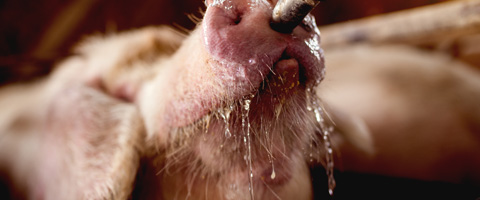8 practical tips to reduce heat stress
Time flies when you are having fun! It is June now and summer is around the corner, but despite the lovely long days, pleasant sunshine and rising temperature there is also a great risk; heat stress.. This is always on top of mind of every animal production farmer, so this month we will write regular articles about this issue.
An elevated ambient temperature causes stress for the animal. The intestine is one of the organs that suffers most from the extra heat. The reason for this is that for example the pig, in the absence of sweat glands, pumps the blood to the skin in order to lose its heat. However, the result is that blood flow to the intestine is limited and thus causes damage to the intestinal epithelium. Cells get an oxygen deficiency and become permeable. This causes all kinds of harmful substances in the blood.
Practical tips to reduce heat stress:
- It is important to increase the ventilation speed. This can already have a major effect.
- Reduce the loft occupancy if possible. Animals produce heat too so lower occupancy means less heat in the loft.
- Lower the temperature of the drinking water allowing the animals to cool down more effectively.
- Avoid feeding the animals during the hottest moment of the day – the animals need the energy to keep cool, not to digest food
- Add electrolytes to assist animals in retaining moisture. ProPhorce™ AC 299 can help.
- Antioxidants (Vit E) can reduce the negative effects of corticosterone induced by stress.
- Increase the energy value of the feed. The animals will lose weight to keep themselves cool, make sure they keep up the pace by feeding high energy feed.
- Reduce the fiber content in the feed. Digesting fiber requires a lot of energy, make sure you feed the animals easily digestible feed.
